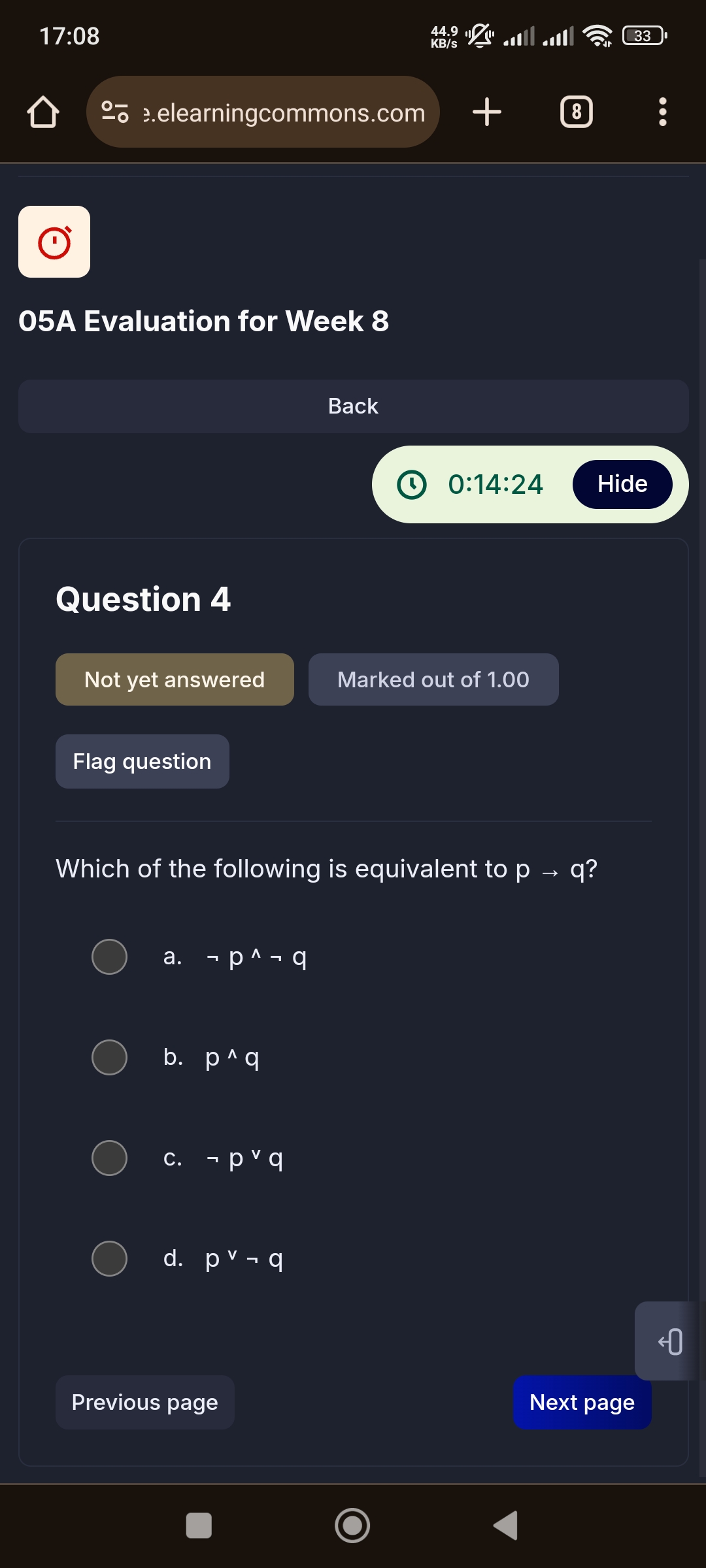Which of the following is equivalent to p → q?

Understand the Problem
The question is asking which expression is logically equivalent to the implication 'p → q'. This involves understanding the relationships between logical symbols and their equivalents.
Answer
The equivalent expression is $¬p ∨ q$.
Answer for screen readers
The equivalent expression to $p \rightarrow q$ is $¬p ∨ q$.
Steps to Solve
-
Understand the implication The implication $p \rightarrow q$ means "if $p$ is true, then $q$ is true." To explore its equivalents, we use logical transformations.
-
Identify the equivalent forms One common equivalent form of the implication is the contrapositive, which is $\neg q \rightarrow \neg p$. Another important transformation is expressing the implication as $¬p ∨ q$.
-
Analyze the options Now, let's analyze the choices given in the question:
- a. $¬p ∧ ¬q$
- b. $p ∧ q$
- c. $¬p ∨ q$
- d. $p ∨ ¬q$
-
Evaluate each option
- Option a: Not equivalent since it represents a different logical expression.
- Option b: Not equivalent, it represents the case where both $p$ and $q$ are true.
- Option c: This is the correct expression corresponding to $p \rightarrow q$.
- Option d: Not equivalent, it suggests $p$ is true or $q$ is false.
-
Confirm the correct answer Thus, the expression equivalent to $p \rightarrow q$ is found in Option c: $¬p ∨ q$.
The equivalent expression to $p \rightarrow q$ is $¬p ∨ q$.
More Information
In logic, the implication $p \rightarrow q$ is logically equivalent to $¬p ∨ q$. This is a fundamental concept in propositional logic known as the material implication.
Tips
- Confusing the implication $p \rightarrow q$ with its contrapositive $\neg q \rightarrow \neg p$. They are equivalent, but not identical expressions.
- Misunderstanding the use of conjunction ($\land$) and disjunction ($\lor$) can lead to incorrect answers.
AI-generated content may contain errors. Please verify critical information